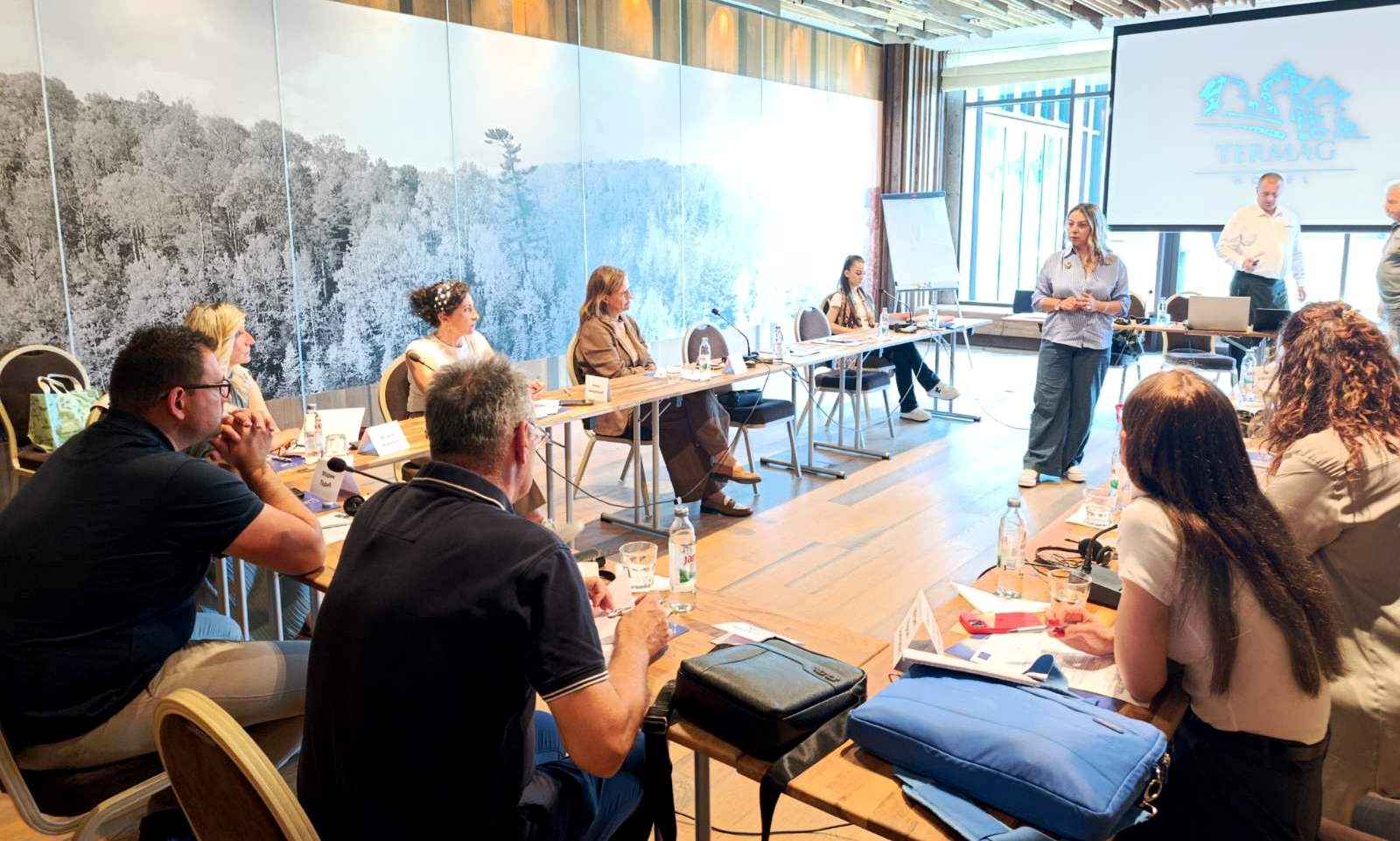The seventh meeting of the Working Group (WG) on Validation of Non-Formal and Informal Learning (VNFIL) within the EU-funded project “EU for Vocational Education and Recognition of Skills in BiH” was held on Jahorina from 25 to 27 June 2025.
During this intensive three-day session, discussions focused on upcoming VNFIL training of trainers (ToT) programs and on project indicators that need to be achieved through this activity.
Special attention was devoted to planning and developing the content of training programs for trainers—specifically, advisers and assessors among them. Key steps were also defined for the further implementation of the VNFIL process.
Through group and plenary work, the selection criteria for participants and institutions were established, and potential locations for piloting the process were discussed.
Sabrina Teskeredžić, Director of the Education Institute of the Foreign Trade Chamber of Bosnia and Herzegovina and a member of the Working Group, stated:
“In the next phase of our work, it is essential that the members of this Working Group—who have been involved in this project component from the beginning—undergo the first phase of the ToT program themselves. After that, we will begin including employers in the ToT as well.”
Given that the Foreign Trade Chamber of BiH maintains a large database of companies, Sabrina Teskeredžić is confident that many will be highly interested in taking part in the entire process, including the pilot phase.
“Based on everything I’ve learned from direct communication with business representatives, initiatives like this are extremely valuable for companies. They give both employers and employees the opportunity to officially validate their knowledge and skills, thereby enhancing the market competitiveness of both individuals and the companies themselves,” she added.
Before implementing the training program for a group of 150 potential VNFIL practitioners and launching three pilot projects in three different locations to test the model, a comprehensive VNFIL Guide was developed, providing step-by-step guidance for establishing the process in the country.
By actively working to create a quality system that acknowledges knowledge and skills acquired outside of formal education, the EU for Vocational Education and Recognition of Skills in BiH aims to develop a complete training process that will remain at the disposal of BiH institutions for future use.



